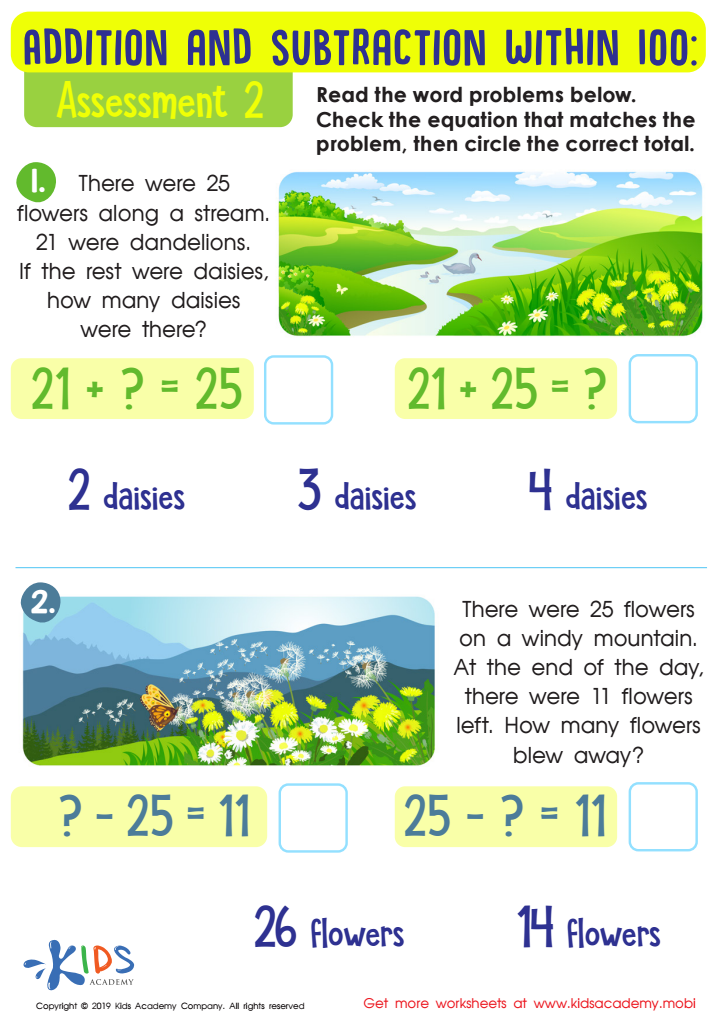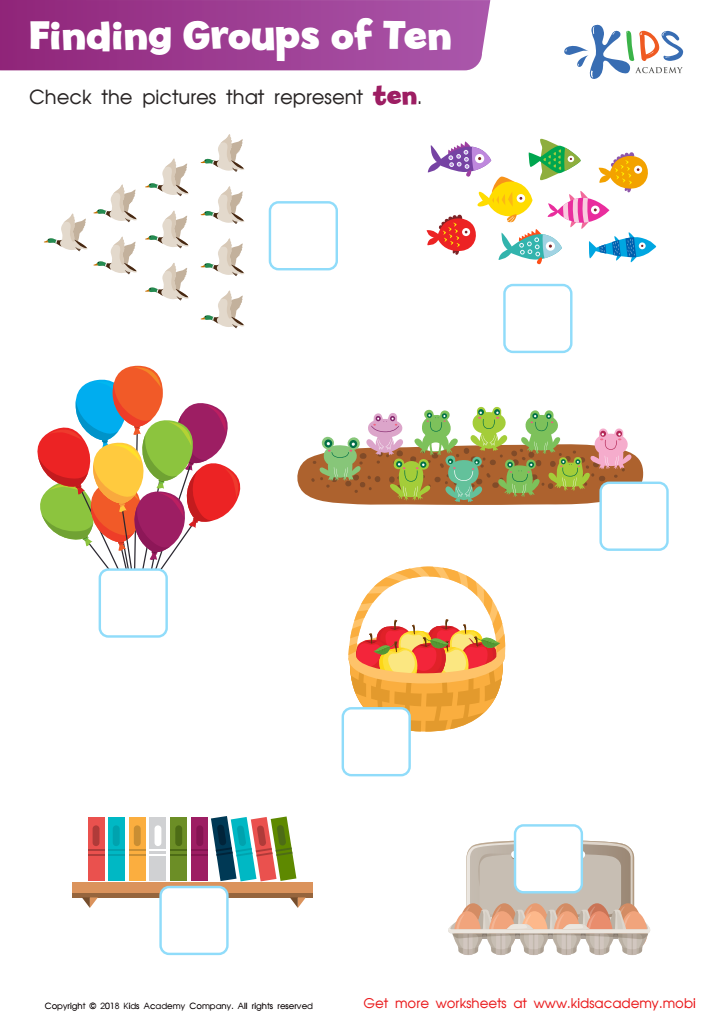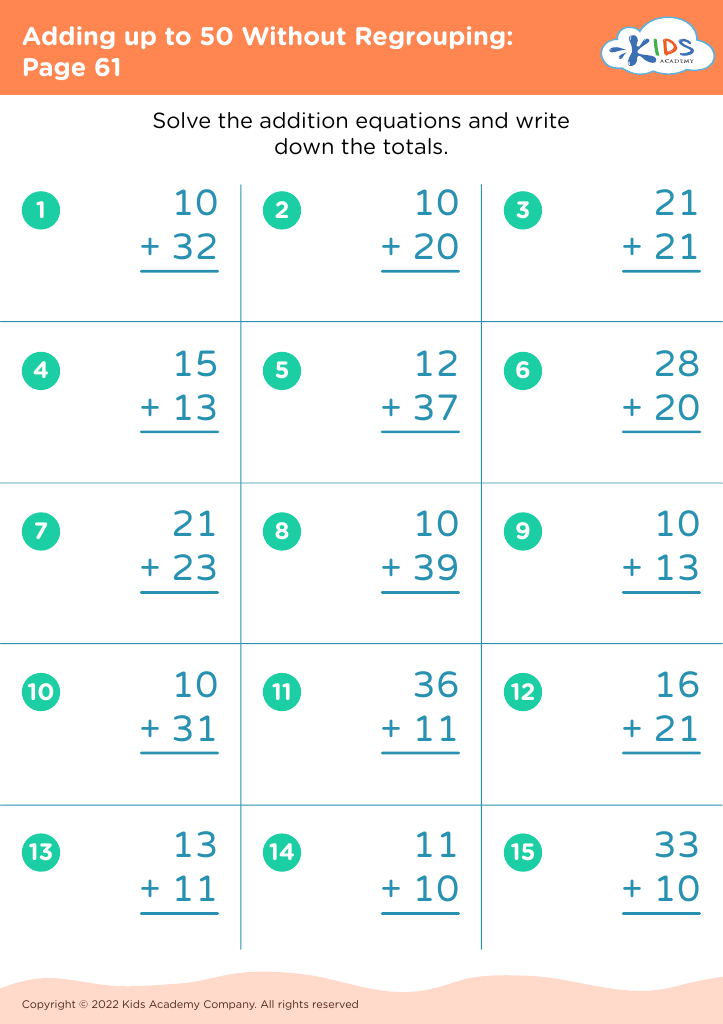Understanding grouping Math Worksheets for Ages 3-7
3 filtered results
-
From - To
Discover the magic of grouping with our "Understanding Grouping Math Worksheets" designed for children aged 3-7. These engaging worksheets help young learners grasp the fundamental concepts of categorization and counting through fun activities. By exploring objects and grouping them based on various attributes, children develop critical thinking and problem-solving skills. Our user-friendly resources encourage creativity and foster a love of learning while enhancing early math foundations. Perfect for parents, teachers, and homeschoolers, these worksheets provide interactive and enjoyable exercises that make mastering grouping an exciting adventure. Explore our collection and watch your child's confidence soar in mathematics!


Assessment 2 Math Worksheet


Finding Groups of Ten Worksheet
Understanding grouping in math is crucial for young children aged 3-7, as it lays the foundation for their numerical and mathematical reasoning. When children learn to group items, they develop critical skills such as categorization, number sense, and problem-solving. This skill not only helps in counting but also enhances their ability to understand addition, subtraction, and more complex concepts as they progress.
Parents and teachers should care about grouping because it fosters cognitive development and engages young learners in active, hands-on exploration of numbers. By working with groups, children learn to recognize patterns and relationships, which are essential components of mathematical learning. Furthermore, grouping activities can be enjoyable, turning math into a fun and interactive experience, thereby nurturing a positive attitude toward learning.
Additionally, grouping supports social and collaborative skills; when children work together, they learn to communicate, share ideas, and develop patience as they solve problems as a team. Ultimately, reinforcing the concept of grouping in early childhood paves the way for stronger math skills, ensuring that children have the confidence and tools they need to succeed as they continue their educational journey.
 Assign to My Students
Assign to My Students




















